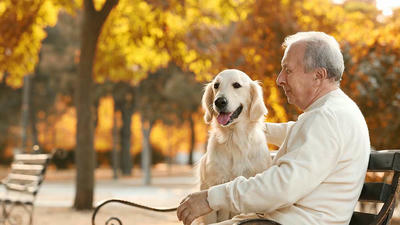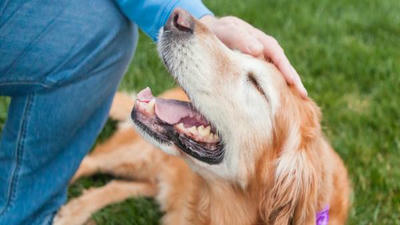
When it comes to adopting a pet, many potential owners gravitate toward puppies and kittens, drawn in by their playful energy and undeniable cuteness. However, there is a heartwarming alternative that deserves just as much attention: adopting senior pets. Senior pets, often defined as those over the age of seven, are frequently overlooked in shelters despite having a wealth of love, companionship, and gratitude to offer.
Senior pets tend to have calmer temperaments compared to their younger counterparts. Having already passed through the awkward and hyperactive puppy or kitten stages, older pets often exhibit greater steadiness and gentleness. This makes them excellent companions, particularly for families, singles, or seniors seeking a lower-energy pet to share their lives with.
One of the most significant advantages of adopting a senior pet is the ability to understand their personality and temperament. While younger animals are still developing their traits and habits, senior pets have often settled into their personalities. This means you can select a pet that aligns with your lifestyle, whether you prefer a cuddly lap dog or an independent cat.
Senior pets typically require less exercise than younger animals, making them ideal for those with a more relaxed lifestyle. Although they still appreciate daily walks and playtime, their exercise needs are often less demanding. This makes them a good match for busy individuals or families who may not have the time or energy for the rigorous activity levels required by puppies or kittens.
One of the most significant challenges new pet owners face is house training. Fortunately, many senior pets are already house-trained and have established routines. Adopting an older dog often means you can skip the tough puppy-training phase and avoid potential accidents in your home.
Senior pets often display deep loyalty and appreciation for the love and care they receive. Many older dogs and cats have faced challenges in their previous homes or have spent extended periods in shelters. Once they find their forever home, they are often incredibly grateful, forming stronger bonds with their new families.

While there are many benefits to adopting a senior pet, it is also essential to recognize the unique challenges they may present. Being informed can help potential adopters make the best choices for their new companions.
As pets age, they may develop various health issues, such as arthritis, diabetes, or dental problems. Regular veterinary care and check-ups become increasingly important for managing these conditions. It is essential to budget for potential medical expenses and to be proactive in seeking veterinary advice when problems arise.
Senior pets may require specific diets tailored to their unique needs. A veterinarian can help recommend appropriate food choices that provide necessary nutrients while accommodating any health issues, like weight management or digestive sensitivity.
Older pets may need some adjustments in the home environment for optimal comfort and safety. For instance, dogs with arthritis may struggle to navigate stairs, while cats might need ramps to access their favorite perches. Providing comfort and adapting your living space is essential for creating a welcoming environment for a senior pet.
Many senior pets come from difficult backgrounds that may contribute to anxiety or behavioral challenges. It’s essential to approach their emotional needs with patience and understanding. Offering a supportive home environment and potential training can help ease these concerns.
Before adopting a senior pet, it’s crucial to prepare yourself and your home for a smooth transition. Here are steps to ensure you’re ready:
Begin by researching local shelters, rescues, and organizations that specialize in senior pet adoption. Many organizations focus on rehoming older pets, often screening for specific breeds or sizes. Websites and social media platforms can provide listings, as well as information about every pet’s unique story.
Reflect on your lifestyle and how it will be compatible with a senior pet. Consider factors such as your level of physical activity, work schedule, and general lifestyle. Ensure you can devote time to care, companionship, and veterinary needs.
Ensure you have the necessary supplies before adopting a senior pet. Here’s a list of essentials to collect:
Schedule a veterinary appointment soon after adopting your senior pet. An initial health check can help identify any underlying health issues and establish a care routine. Discuss any necessary vaccinations and preventative treatments specific to older pets.

Take time to meet various senior pets to find the one that resonates with you. Pay attention to their behaviors, demeanor, and how they interact with you. Look for a pet that matches your energy levels and lifestyle.
Don’t hesitate to ask shelter staff or rescue coordinators questions about the pet’s history, health, and behavioral traits. Understanding their background will help in facilitating a better transition into your home.
Some shelters may require a home visit or interview to ensure your living conditions are suitable for a pet. Be honest in your discussion about your environment and daily routines.
Upon finding the right pet, complete the necessary paperwork and pay any associated fees. Most rescue organizations and shelters will provide vaccinations, health checkups, and necessary medical documentation at the time of adoption.
Welcoming a senior pet into your home is an exciting time, and a smooth transition can set the stage for a lasting bond. Here are key tips to help your new companion adjust:
Designate a quiet, comfortable area in your home for your senior pet. This space should be free from excessive noise and should contain their bed, food, and water. Allow them to explore their new surroundings at their own pace.
Give your senior pet time to acclimate to their new home. Every pet will adjust differently, and it may take a few days or weeks for them to feel comfortable. Be patient and allow them to establish their routine.
Pets thrive on routine. Establish a consistent schedule for feeding, walks, and bathroom breaks. This predictability will help your pet feel more secure during the adjustment period.
Encourage exploration of the home while monitoring their comfort level. Use treats to positively reinforce new behaviors and interactions. Provide gentle encouragement and praise as they take steps outside their comfort zone.

Regular health maintenance is vital for senior pets. Here are key health considerations to keep in mind:
Schedule regular veterinary check-ups every six months to monitor your senior pet's health. Regular examinations help catch any health issues early, leading to more successful treatments.
Work with your veterinarian to create a balanced diet suited for your senior pet's needs. Older pets often benefit from a diet that supports joint health, weight management, and overall wellness.
While older pets may require less exercise, it is important to ensure they remain physically active. Short walks, gentle playtime, and interactive toys can aid in maintaining their physical and mental health.
Keep your senior pet groomed regularly. This includes brushing their coat to reduce shedding and matting, trimming nails, and cleaning their teeth. Maintaining hygiene promotes comfort and well-being.
Observe any changes in behavior, mobility, or appetite. Changes may indicate underlying health issues that require veterinary attention. Being attentive to your pet’s behavior is vital in providing the best care.
Senior pets may present specific challenges, but many can be addressed with understanding and patience.
Older pets may experience mobility challenges due to arthritis or other conditions. Consider providing ramps or orthopedic beds to support their comfort. Speak with your veterinarian about potential aids or medications to address pain.
Incontinence can be common among older pets. If you notice any accidents, consult your veterinarian for recommendations and discuss appropriate measures to manage the situation, such as washable pads or doggie diapers.
Changes in behavior, such as increased anxiety or confusion, can indicate cognitive dysfunction in senior pets. Offer reassurance and consider engaging them in stimulating activities. If problems persist, consult with your veterinarian.
Adopting a senior pet can be one of the most rewarding experiences you’ll ever undertake. Here are some reflections on the joy and fulfillment that comes with welcoming a senior pet into your home:
Senior pets are often filled with gratitude and love for their new families. Their serene appreciation for companionship creates a heartwarming bond that can enrich your life immeasurably.
Caring for a senior pet provides a sense of purpose. Being responsible for their well-being can deepen your connection to another living being and promote a fulfilling routine.
Every moment spent with a senior pet can be incredibly meaningful. From gentle walks to snuggling on the couch, the shared experiences create cherished memories that will last a lifetime.
By adopting a senior pet, you set an example for others in your community. Your decision can inspire friends and family to consider giving older animals a chance at a loving home.
Choosing to adopt a senior pet can be one of the most fulfilling decisions of your life. With a wealth of benefits ranging from calm companionship to unwavering loyalty, older pets are incredibly deserving of a loving home. While challenges exist, the rewards of providing a lifelong home to a senior pet far outweigh the difficulties.
As you contemplate the decision to adopt, remember that senior pets have so much to offer. Whether it’s a gentle cuddle on the couch or a tranquil walk in the park, the gift of companionship, love, and joy awaits you. Open your heart and home to a senior pet—you may very well find it to be one of the best decisions you've ever made.